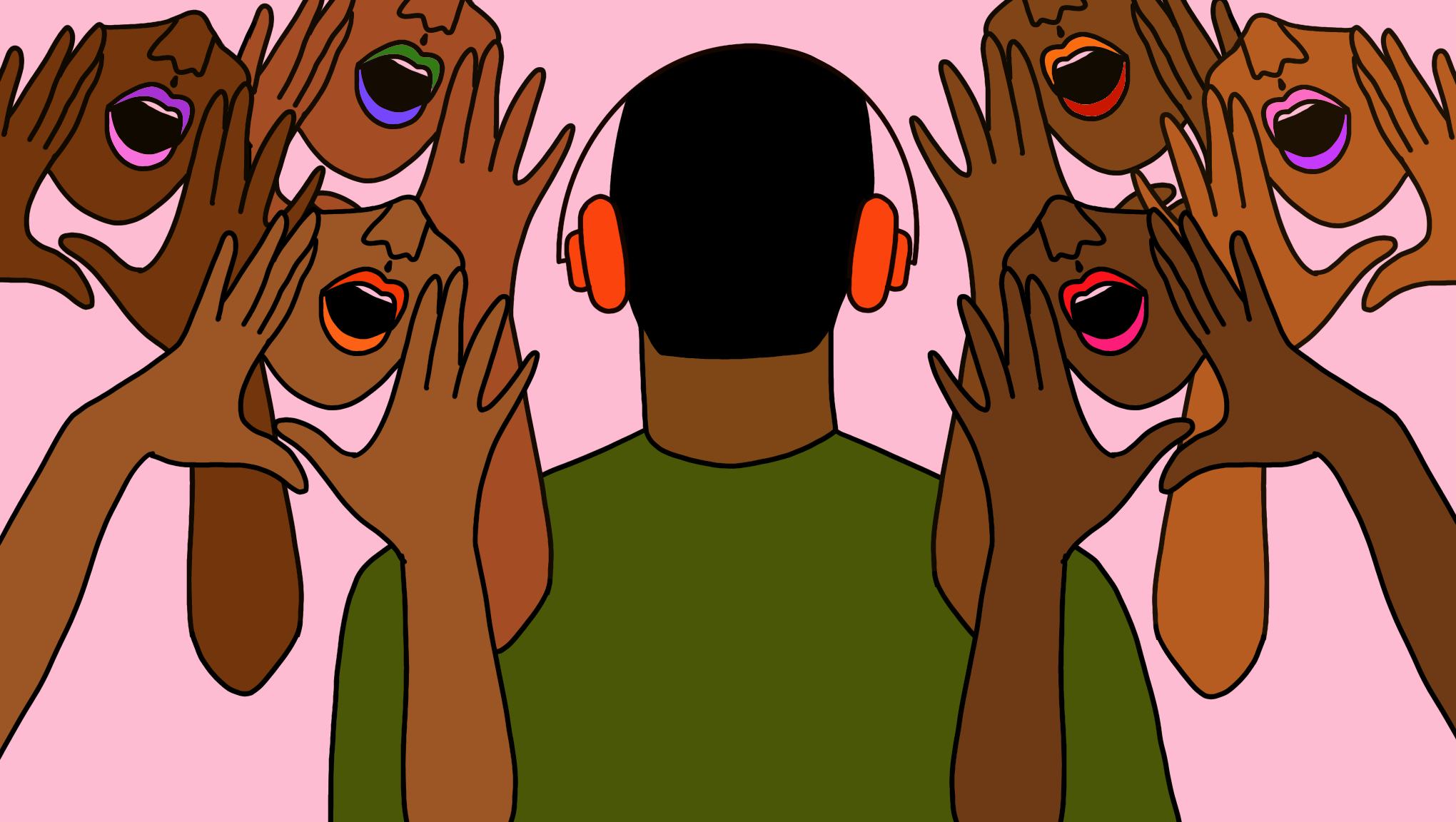
In 1977, the Combahee River Collective, a Black feminist lesbian socialist organization, wrote in a statement: “Black women are inherently valuable, that our liberation is a necessity not as an adjunct to somebody else's but because of our need as human persons for autonomy. This may seem so obvious as to sound simplistic, but it is apparent that no other ostensibly progressive movement has ever considered our specific oppression as a priority or worked seriously for the ending of that oppression.”
As the decades have progressed, public discourse has molded itself to the perception of standing in line with these words. Hashtags like #ProtectBlackWomen and #SayHerName have expanded from social media into common nomenclature, and T-Shirts proclaiming fealty to Black feminist icons have become an en vogue method of virtue signaling. In practice, however, claims of “intersectionality” are often tossed aside when these principles run afoul of established social paradigms.
This is particularly evident in hip-hop and the media surrounding it, with new music rollouts, podcasts and the wildly popular Verzuz continuing to prove that supportive words fail to be reinforced by corrective community action.
In recent years, the podcast universe has rapidly expanded to hone in on the growing market of hip-hop lovers. The largest platforms and personalities in this space showcase just how pervasive misogynoir continues to be in the culture. The Joe Budden Podcast, whose eponymous anchor has himself been repeatedly accused of abuse by women not only recently invited viral sensation Kevin Samuels to his platform, a man who has built his profile repeating worn-out maxims about cishet Black women’s desirability and the silencing of Black men, but also recently put out a statement of apology for allegations of sexual harassment by Olivia Dope, a former host of See, The Thing Is… in his podcast network . Recently, it was announced that Dave Chappelle, Talib Kweli, and Yasiin Bey were launching a podcast called The Midnight Miracle, despite Chappelle being repeatedly criticized for his harmful language towards trans women and Kweli being permanently suspended from Twitter for his unceasing harassment of Maya Moody. Rapper and host of the Drink Champs podcast N.O.R.E.recently invited Talib Kweli to the show and discussed a highly-criticized episode of the podcast that alleged serial rapist Russell Simmons was invited to participate in. During the conversation, N.O.R.E. remarked that “cancel culture” hadn’t given his large media platform the benefit of the doubt in being aware of complaints that had been leveled in the mainstream since November 2017. Simultaneously, he proceeded to offer Simmons the benefit of the doubt, highlighting both Oprah pulling out from On the Record and his having failed to be charged in a criminal court to date.
In the case of Swizz Beatz and Timbaland’s Verzuz, the cultural phenomenon has repeatedly given a platform to men who have been accused and convicted of harm against women without accountability or concern. Brooklyn-based rapper Fabolous, who was charged in March 2018 with multiple counts of aggravated assault and domestic violence after reportedly punching his partner, Emily Bustamente, several times and knocking out her two front teeth, was nonetheless honored with a Verzuz special of his own alongside Yonkers rapper Jadakiss in June 2020. Nelly, who has repeatedly been accused of sexual assault, was featured opposite Ludacris in May 2020. Grace has also been offered to R. Kelly, whose discography is continuously featured at various Verzuz events, highlighting how lauding individuals at the expense of Black women’s comfort and safety is an accepted calculus.
As Verzuz has grown and made brand deals with Apple and Triller, the amplification of the works of harmful Black men has remained. In the April 20th event featuring rap legends and How High co-stars Redman & Method Man, both artists repeatedly celebrated alleged serial rapist Russell Simmons, allowing him to Facetime into the performance from his enclave in Bali – a place infamous for its lack of an extradition treaty with the United States. Furthering the insult is the fact that Method Man directly worked with Drew Dixon, one of Simmons’ accusers, on the seminal 1995 duet with Mary J. Blige, “I’ll Be There for You/You’re All I Need,” which he performed on the very same Verzuz stage. (Mic reached out to Verzuz to request comment on the criticisms of this story, and they did not immediately respond.)
In Black Macho and the Myth of the Superwoman, Michelle Wallace wrote: “the history of the period has been written and will continue to be written without us. The imperative is clear: Either we will make history or remain the victims of it.” At the time, she was referring to the clear gaps in both the white women’s feminist movement and the Civil Rights movement. A through-line to the status quo, however, reflects that resistance persists in the effort to create a musical space that adheres to being grounded in the realities of our own identities.. As the Collective pointed out, “in the case of Black women this is a particularly repugnant, dangerous, threatening, and therefore revolutionary concept because it is obvious from looking at all the political movements that have preceded us that anyone is more worthy of liberation than ourselves.”
Instead, as Wallace expressed in an essay titled “A Black Feminist’s Search for Sisterhood” out of the essay collection All the Women Are White, All the Blacks Are Men, But Some of Us Are Brave: Black Women’s Studies, “We exist as women who are Black who are feminists, each stranded for the moment, working independently because there is not yet an environment in this society remotely congenial to our struggle — because, being on the bottom, we would have to do what no one else has done: we would have to fight the world.” Indeed, that seems to continue to be the case — in hip-hop as it currently stands, preservation of “the culture” demands that Black women silence their dissent to alleviate everyone else’s discomfort and prioritize the enjoyment of the masses.
On May 8, Verzuz produced a Mother’s Day weekend special featuring SWV versus Xscape, despite Xscape member Tameka “Tiny” Harris currently being under scrutiny alongside her husband T.I. for alleged serial sexual assault by dozens of women. Not only was her photo featured on the promotional materials, but the performance also included music from her husband in the warm-up mix by the Xscape tour DJ, DJ AONE, as 450,000 viewers looked on. Soulja Boy, who has recently made waves on Tiktok with his new single “She Make It Clap”, has been repeatedly accused of battery, sexual assault, and kidnapping. (Soulja Boy also recently announced an upcoming Verzuz battle with Bow Wow, who has also been charged with assault.) All of these celebrations and accolades are upheld by demanding the silence and dismissal of Black women who have chosen to come forward about their respective traumas, reinforcing the uncomfortable truth that the utterance of #ProtectBlackWomen comes with terms and conditions that their experiences violated, the first one being a demand for a concession of power and influence.
Hip-hop was predicated, amongst other factors, as a musical and cultural framework to give a voice to the voiceless. It is unendingly tragic, then, that Black women who have stood alongside its growth have failed to see any material gains in establishing a framework that truly respects the agency of Black women, instead choosing to continue to adhere to a utilitarian position of preservation in which we are ultimately expendable. Rhetoric is toothless if it is not superseded by collective action, and simply iterating a love for Black women is worthless if that love is transactional and conditional. This continued grievous oversight failing to cross the threshold into a publicly acknowledged harm that demands accountability serves as proof positive of a cognitive dissonance that relegates Black women as reluctant participants in a cultural landscape that they were fundamental in shaping.







